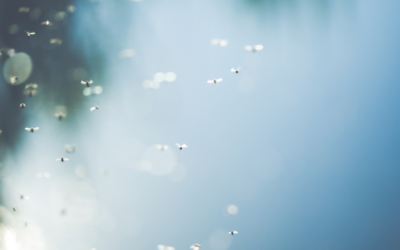What are some common garden pests?
Garden pests can do serious damage in very little time. They can ravage and feast on all of your hard work in a matter of seconds. Garden pests can be unruly, but if you know their habits, you can easily get rid of them. By knowing the kind of pest you are dealing with, you can set up precautionary measures to keep them out of your garden altogether. Below, we have compiled a list of the most common garden pests and ways you can get rid of them!
Aphids
Aphids are small insects that are fueled by sap from plants. These small pests may seem insignificant, but they can do immense damage without you even noticing. The aphids you would typically see in a garden are minuscule and bright green. They often go unnoticed, but their damage is lasting. Typically, aphids attack plants through the stem by sucking their sap, which then hinders the nutrition of the plant, resulting in the plant drying out. The easiest way to see if you have aphids is by inspecting your leaves. Despite taking good care of your plants, your leaves could still turn dry and yellow. If this is the case, then you are likely dealing with aphids.
How do you get rid of Aphids?
Aphids normally appear because your garden is out of whack. If you’ve suffered from a drought, flooding, or even overcrowding, you could attract aphids. The easiest at-home remedy that should get rid of aphids is a mix of water and dish soap. Lightly spraying your plants with the mixture frequently should deter aphids. However, you need to be careful because overtreating your garden with this solution could be lethal to your plants.
Slugs
Slugs are an interesting topic when it comes to your garden. A healthy slug population is not bad for a garden because of its regenerative properties. However, an overpopulation of slugs can hurt your garden immensely. Slugs break down debris and turn it into fertilizer, benefiting the plant. However, in many cases, slugs become too degenerative, harming the plant. The most common way that slugs can harm your garden is by overfeeding the plants. If they eat too much of your plant, specifically at the stem, then that plant will die. Most gardeners believe slugs do more harm than good, and they choose to eradicate them.
How do you get rid of slugs?
Slugs are attracted to almost every single plant available, meaning nothing is safe. To prevent slugs from entering your garden, you must create a boundary around the perimeter. The most natural and beneficial way of doing so is by using either crushed eggshells or pine needles. These two things would not only keep slugs out, but they’d also act as a natural fertilizer once they degrade. Remember, not all slugs are bad, but you do need to control their population size!
Snails
Most gardeners would agree that snails are the worst kind of pest you could have in your garden. Snails might be small, but they are mighty. These pesky gastropods can completely wipe out the entirety of your garden in a matter of days. They target vegetable growth and eat anything they can find. Some simple nibbling here and there wouldn’t be terrible, but snails target roots and stem. By eating the roots and stems of plants, snails can kill them before they’ve even had the chance to grow. Furthermore, the slime trail left behind by snails can be toxic to ingest—for both you and your plants! Snails can be a death sentence for your blossoming garden, so it’s best to prevent their invasion altogether!
How do you get rid of snails?
Similar to slugs, snails are attracted to everything. Because of this fatal attraction, they can be difficult to eradicate. One of the most humane ways to rid your garden of snails is by creating a beer trap. Snails are attracted to beer, so simply pouring some in a shallow bowl near your garden could help! If the trap doesn’t work, you could simply inspect your garden and remove each snail by hand. If neither of these options offers results, you can spray the snails with cold coffee. The caffeine in the coffee will kill them and put an end to their invasion.
Moles and Rabbits
Moles and rabbits damage your garden in similar ways. Both of these mammals are destructive to gardens; they only differ in the terrain in which they do their damage. Moles do most of their damage underground, while rabbits feast above ground. Moles will burrow beneath your garden resulting in damage to the stems of your plants which could eventually kill them. Contrarily, rabbits will eat every inch of your plants above ground. Though these pests have obvious differences, they are incredibly similar. These mammals are a death sentence for your garden, so you must prevent their hostile takeover entirely.
How do you prevent moles and rabbits from harming your garden?
The easiest way to prevent a mole from taking over your garden is by setting precautionary traps for them. However, if your garden has already been taken by moles, then your best bet is to flood their tunnels. Flooding their tunnels will not kill them, but it will annoy them enough to keep moving. Rabbits are much easier to keep out of your garden than moles. To keep rabbits away, you can simply put up a chicken wire fence around the perimeter. These mammals are horrible for your garden, so don’t procrastinate!
If you are at war with any of these garden pests, schedule a free inspection with 855Bugs pest control in Waco, Texas or Temple, Texas today! We work to keep your garden as healthy and beautiful as possible! No pest should come in between you and your green, leafy sanctuary.




